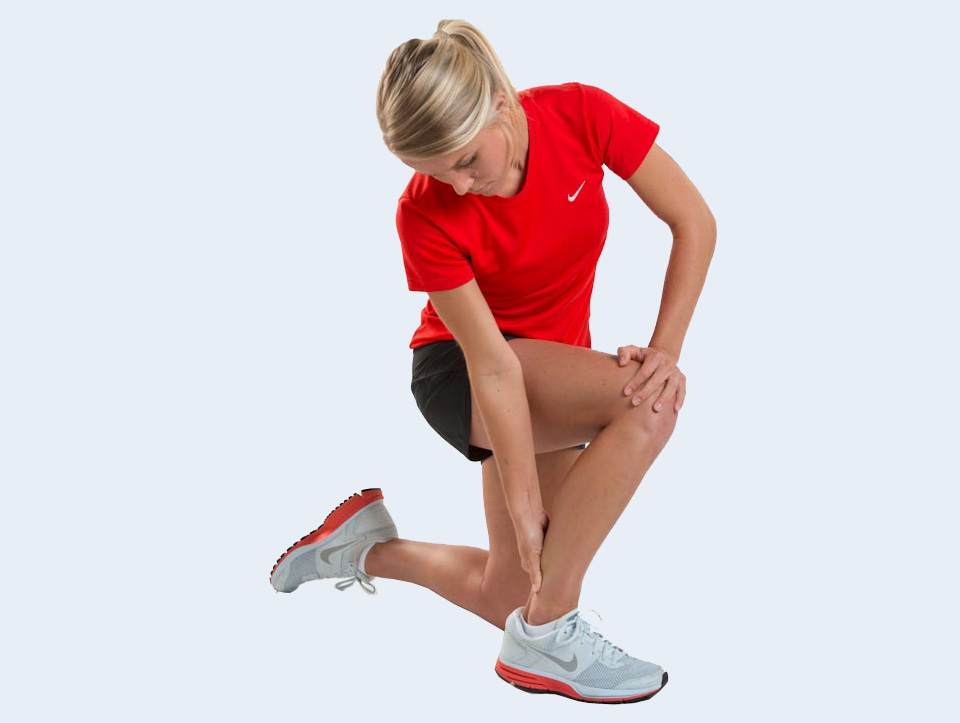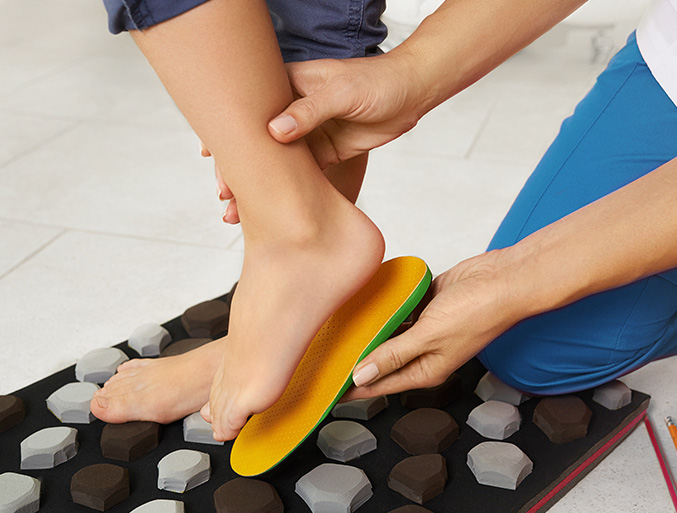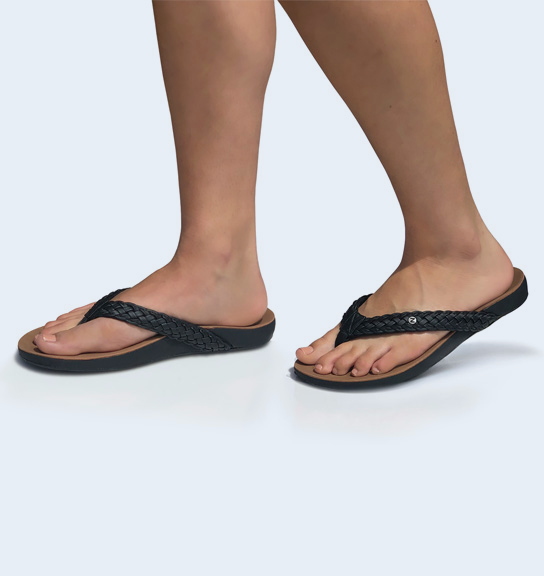Achilles tendonitis happens when the Achilles tendon, which connects your calf muscle to your heel bone, gets irritated or inflamed. This often happens from overuse or strain, like when you suddenly increase your running distance or intensity. This can cause pain, swelling, and tightness at the back of the ankle, making everyday activities like walking quite uncomfortable.
Fortunately, special shoe inserts called orthotics can help relieve the strain on the Achilles tendon. At footlogics, for over 15 years we have been making high-quality orthotic insoles that are designed to provide the targeted support your achilles tendon needs, to heal and prevent further injury.
Orthotics can absolutely help with Achilles tendonitis. The heel and arch support they provide works to reduce the strain on your Achilles tendon. This takes the pressure off the inflamed area, allowing it to heal while also preventing the condition from worsening. The added stability and cushioning of orthotics can make a real difference in managing your Achilles tendonitis symptoms.
Footlogics' Achilles tendonitis insoles are designed specifically to address your foot pain. Our insoles feature deep heel cups that cradle your heel, reducing pressure on bone spurs and providing insertional Achilles support. Additionally, the supportive arch design promotes proper foot posture, minimising stress on the tendon. Unlike generic insoles, Footlogics offers the perfect balance of support and cushioning, crucial for optimal healing and comfort.
Achilles tendon is the tissue connecting your calf muscles to your heel. It is vulnerable to heavy exercises, sport injuries. You may need insoles for Achilles tendon pain, if any of this describes you:
If you have these symptoms of achilles tendonitis, then our orthotic insoles can help you.
For Achilles tendon injuries, orthotics can help by providing cushioning and support to the affected area, which can reduce pain and inflammation. They may also help distribute pressure more evenly along the foot and ankle, reducing the risk of further injury or strain to the Achilles tendon.
In terms of injury prevention, orthotics can help correct biomechanical issues in the feet and ankles that may contribute to injuries during sports activities. Research suggests that orthotics treat achilles tendon repair and prevent sport injuries. By providing support and stability, orthotics can help improve foot and ankle alignment, reduce excessive pronation (rolling inward of the foot), and decrease stress on the Achilles tendon and other structures.
However, it's essential to note that the effectiveness of orthotics can vary depending on individual factors such as the severity of the injury, foot anatomy, and biomechanics. If the pain persists, please consult a specialist or a doctor.

Footlogics' medical grade orthotic insoles are specifically designed by podiatrists to give your feet comfort and healing. Footlogics insoles for achilles tendonitis feature:

Footlogics orthotic insoles offer targeted pain relief for your Achilles tendon, allowing you to move with greater ease. We recommend using our specially designed Insoles for achilles tendon pain relief. The benefits include:

It depends on the severity of your pain. After consistent use of orthotics, you can expect relief within four to six weeks.
Footlogics insoles are designed to fit most shoe types. Based on your need, choose comfort, casual, or sports shoe insoles from our range.
If you participate in activities that stress the Achilles tendon, orthotic insoles can prevent future injuries. It provides the support and prevents Achilles tendon rupture.
In case of achilles tendonitis, it is not recommended to carry out high-impact activities or stretch too much, especially when the tendon is inflamed. Trying to power through the pain can make the problem worse and slow down healing. Instead, stick to low-impact workouts, use cold packs, and support the tendon with orthotics or braces.
